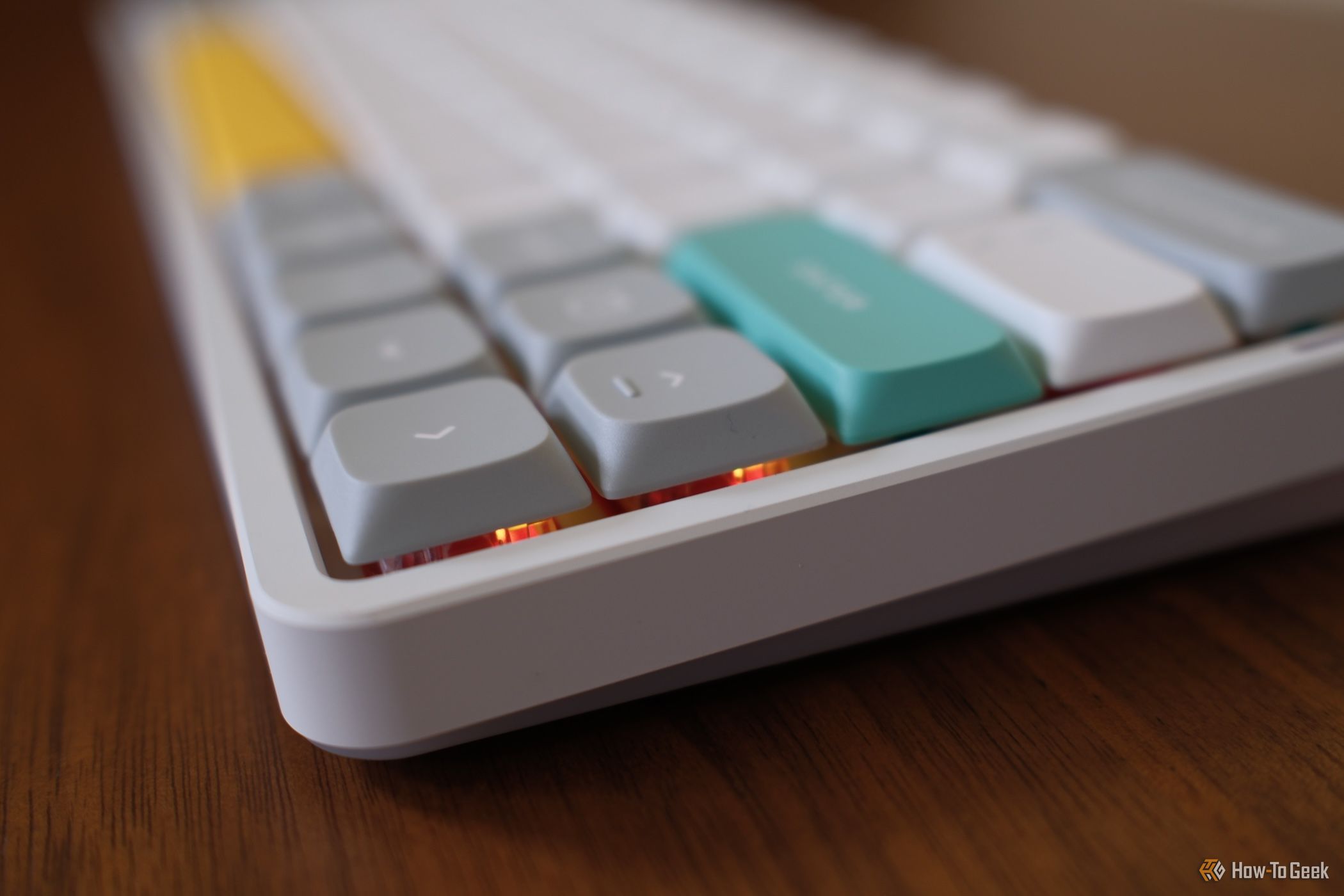
Why a Low-Profile Mechanical Keyboard? Explore These 10 Compelling Benefits Now!

Why a Low-Profile Mechanical Keyboard? Explore These 10 Compelling Benefits Now!
Quick Links
- They’re Brilliant for Typing
- They Have a Smaller Footprint Than Regular Mechanical Boards
- Low-Profile Mechanical Keyboards are Available in All Form Factors, From 60% to Full Size
- If Sound Is What You’re After, You Can Find a Number of Low-Profile Options That Sound Great
- Most Low-Profile Mechanical Keyboards Support Custom Keycap Sets
- Many Low-Profile Mechanical Keyboards Are Hot-Swappable
- There are More and More Models With QMK and VIA Support
- Virtually Every Low-Profile Mechanical Keyboard Supports Wireless Connectivity
- Low-Profile Mech Boards Are Perfect for Users Who Need One Keyboard for Multiple Devices
- There’s a Low-Profile Mechanical Keyboard for Every Budget
- What Regular Mechanical Keyboards Still Do Better
Key Takeaways
- Low-profile keyboards are great for typing, offering larger, flatter keycaps for faster typing speeds.
- They come in all form factors, are lighter, and have wireless connectivity, perfect for any budget.
- Low-profile mechanical boards rival regular ones in sound quality and customization options.
For quite some time, there were just a handful of low-profile mechanical keyboards on the market. Nowadays, you can pick between a ton of different models in every price bracket. Here’s why low-profile mechanical keyboards are great, and why you ought to get one.
They’re Brilliant for Typing
Despite being a writer, I’m a pretty slow typist. On my Keychron K2 with Cherry profile keycaps, I can manage about 70WPM—words per minute—on Monkeytype . Replacing Cherry keycaps with an SA keycap set improves my score to about 75WPM. But when I type on my Vissles LP85 , I regularly go over 80WPM, usually scoring higher than 85WPM.
I reckon that one of the reasons is that virtually every regular keycap profile has an inward slope design, where the keycap has a noticeably smaller top surface compared to the bottom. If you take a look at the photo below, you can see that both a Cherry—on the left—and an SA—on the right—keycap has a noticeable inward slope, with both keycaps being much narrower at the top. The low-profile keycap—in the middle—isn’t sloped, allowing me to hit low-profile keys more easily and more consistently, resulting in higher typing speed.
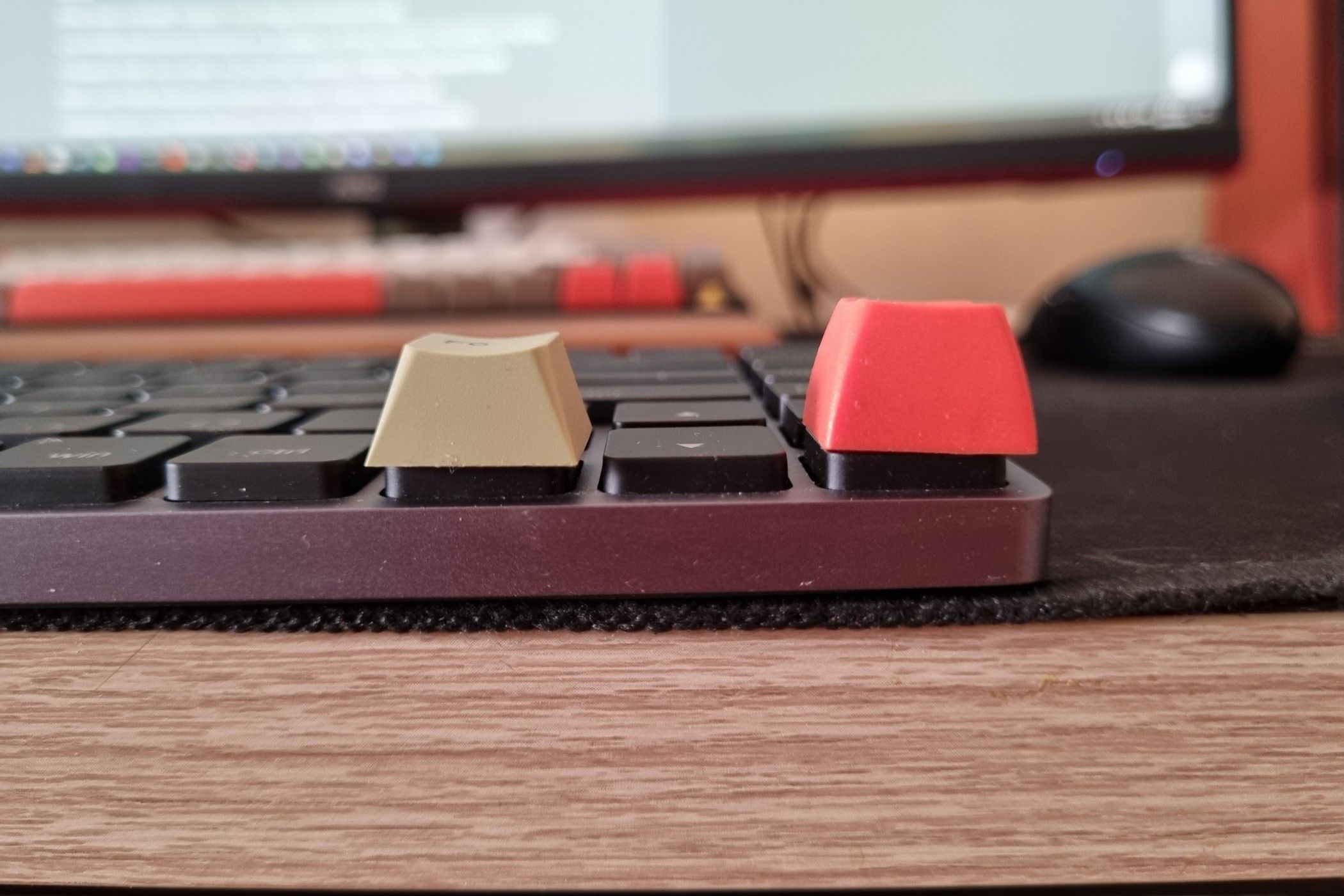
Goran Damnjanovic/How-To Geek
Another reason is the flatness of low profile keycaps. Not only do they offer a larger surface for your fingers to hit, they’re also quite flat and only a teeny bit concave, making typing easier and faster.
This applies to most low-profile keyboards. Despite a number of models with inwardly sloped keycaps, the slope is much less pronounced than on regular mech boards. Even in keycaps with a more pronounced slope, the size of the topside surface is less affected because of the short length of every low-profile keycap profile.
They Have a Smaller Footprint Than Regular Mechanical Boards
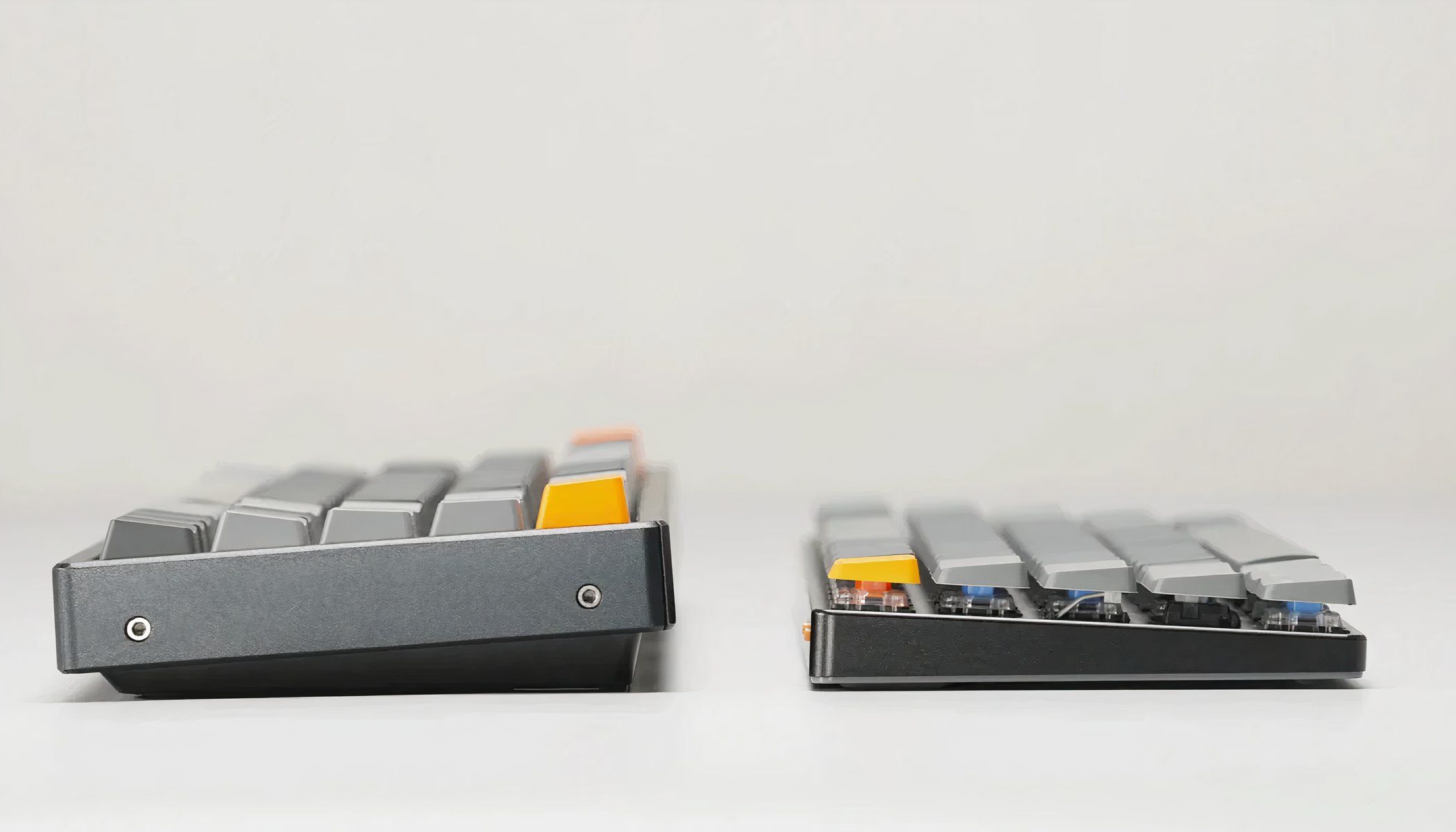
Keychron
A low-profile keyboard is thinner, lighter, and has a noticeably smaller footprint than a regular mechanical keyboard. This not only makes them perfect for travel but also makes your desk setup look much cooler and cleaner looking.
Low-Profile Mechanical Keyboards are Available in All Form Factors, From 60% to Full Size
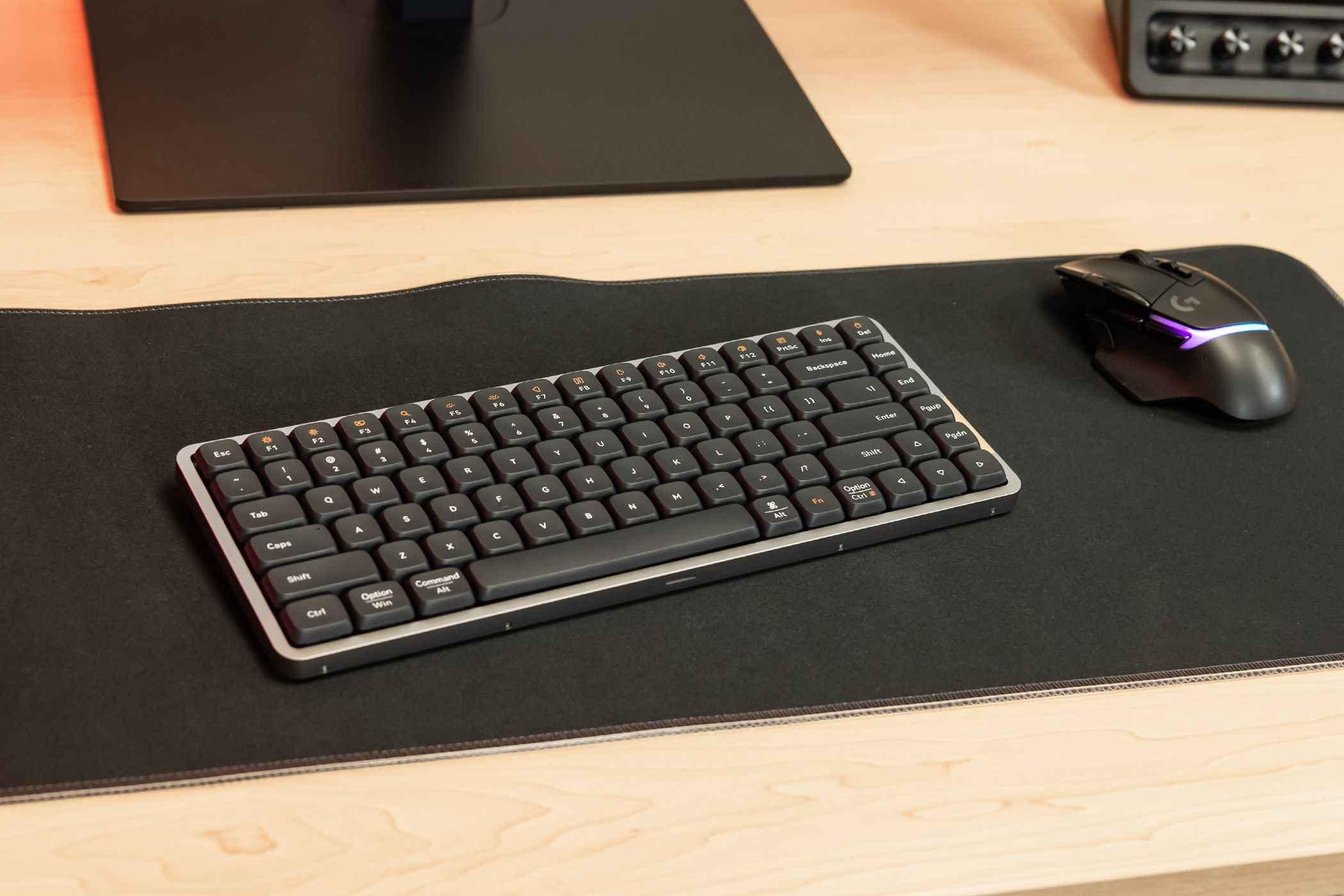
Sergio Rodriguez / How-To Geek
Back in the day, your only options were full-sized and TKL low-profile boards. But nowadays, you can find a number of models in every form factor.
I’ve noticed that the most popular one is 75%, but there are more and more 65% and 60% models coming out, as well as the ones featuring a compact full-sized design—known as 96%—that gives you a full number pad but takes less space than a regular, full-sized typing slate. You can even find models featuring the ergonomic Alice form factor, such as the Keychron K11 Max , which was unheard of just a couple of years ago.
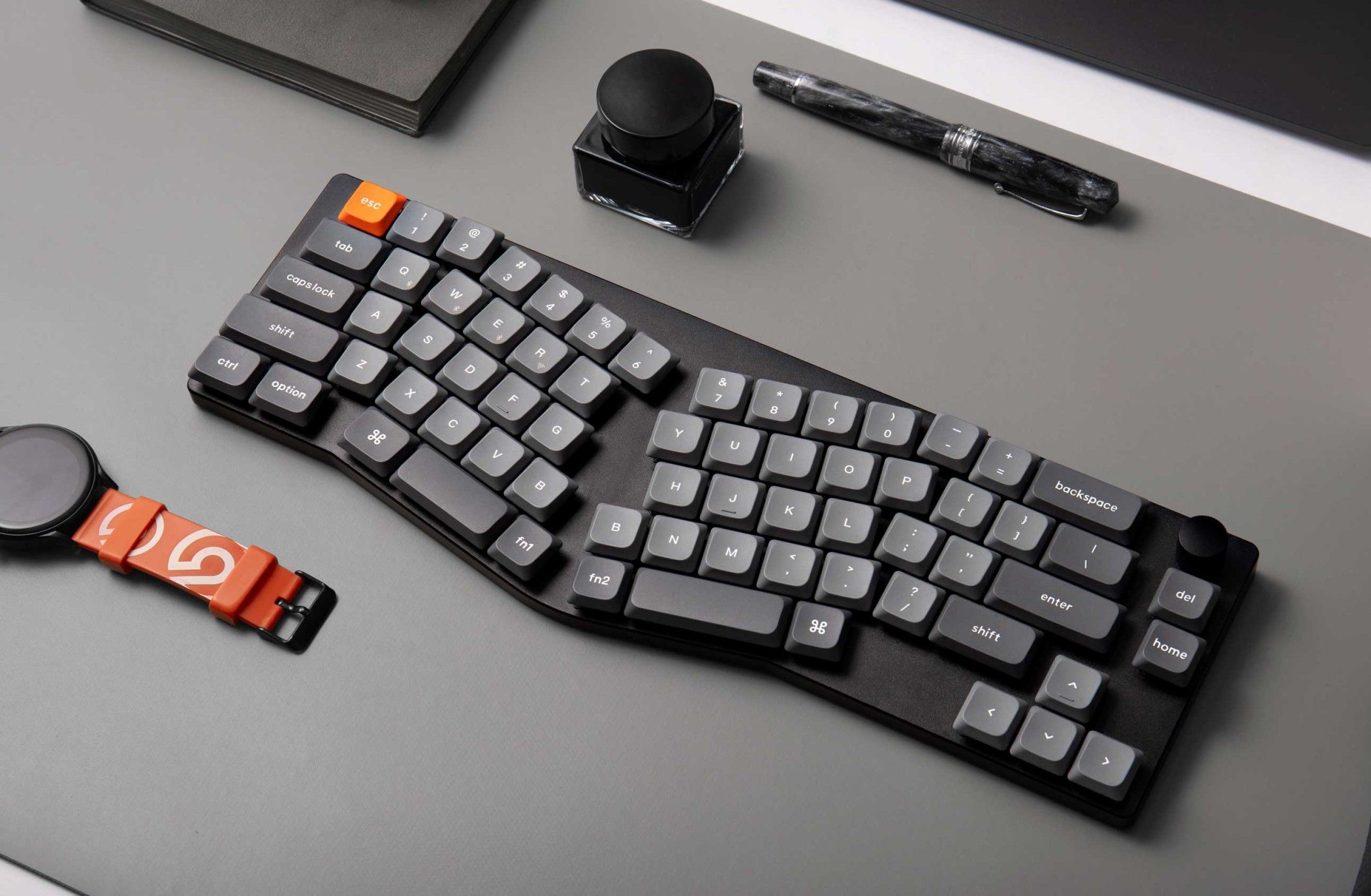
Keychron
No matter which keyboard form factor you prefer, you can find multiple low-profile mechanical keyboard models featuring it, which is great to see.
If Sound Is What You’re After, You Can Find a Number of Low-Profile Options That Sound Great

NuPhy
One of the biggest distinctions between regular and low-profile mechanical keyboards is the sound. While you can find a regular mech keyboard with a perfect sound no matter whether your preference lies at the “thocky,” “marbly,” or “clacky” end of the spectrum, low-profile keyboards have always sounded a tad empty, lifeless.
Well, that’s no longer the case. Just listen to how thocky the Lofree Flow sounds, courtesy of the Hipyo Tech YouTube channel . Then we have the NuPhy Air 75 V2 , which doesn’t sound as good as the Flow, but it still thocks rather nicely. Hear for yourself by watching this typing test , courtesy of the SemiPro Tech+Gear YouTube channel.
Gone are the days when low-profile mechanical keyboards sounded lifeless. Manufacturers have started to include sound-dampening foam and plate Poron foam , as well as design their low-profile mech keyboards in a way that improves the structure-borne sound.
Most Low-Profile Mechanical Keyboards Support Custom Keycap Sets
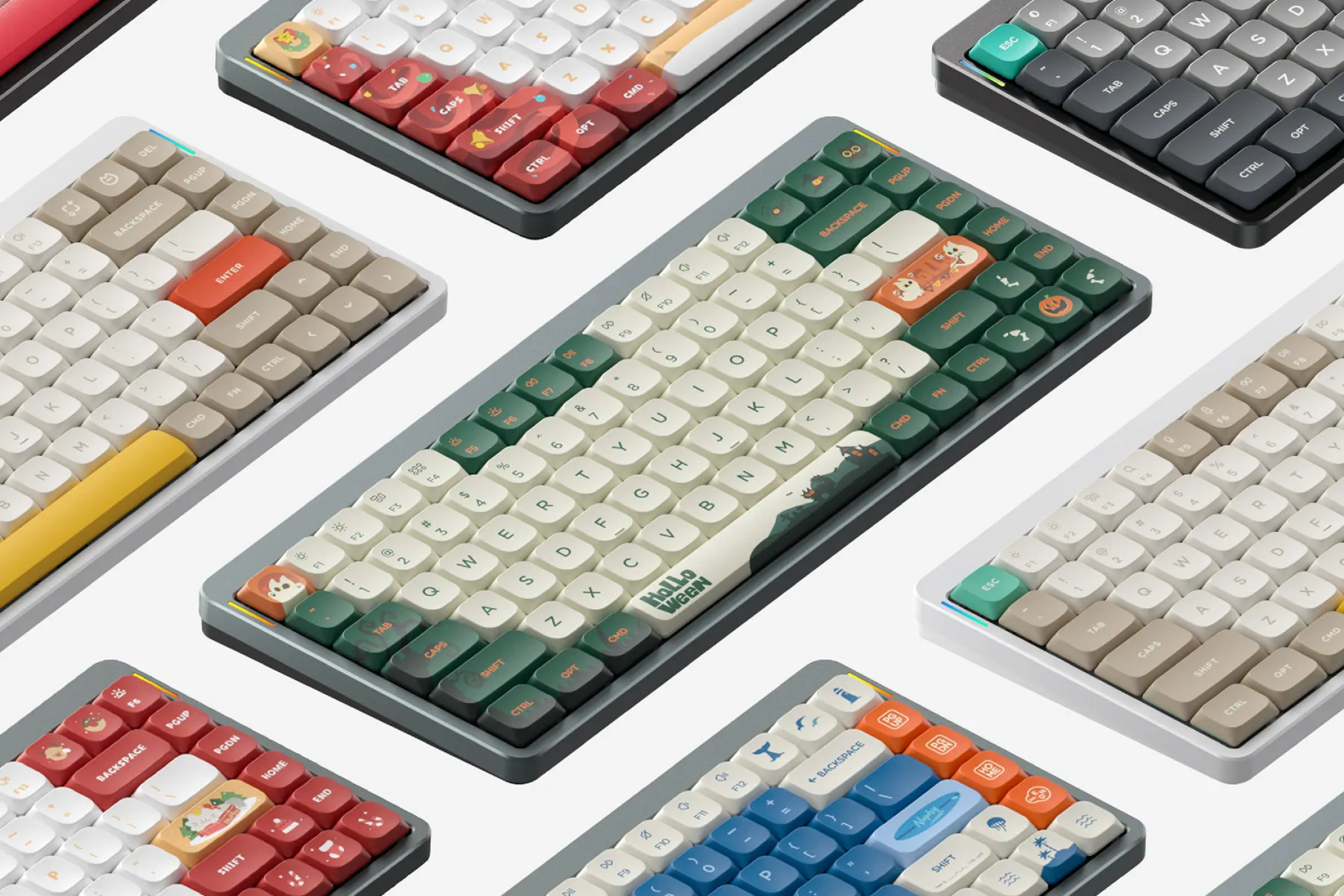
NuPhy
The first generation of low-profile mechanical keyboards, those coming from Logitech and Keychron, featured switches with unusual stems that were incompatible with regular keycaps featuring Cherry-style stems—the ones with a cross-like shape.
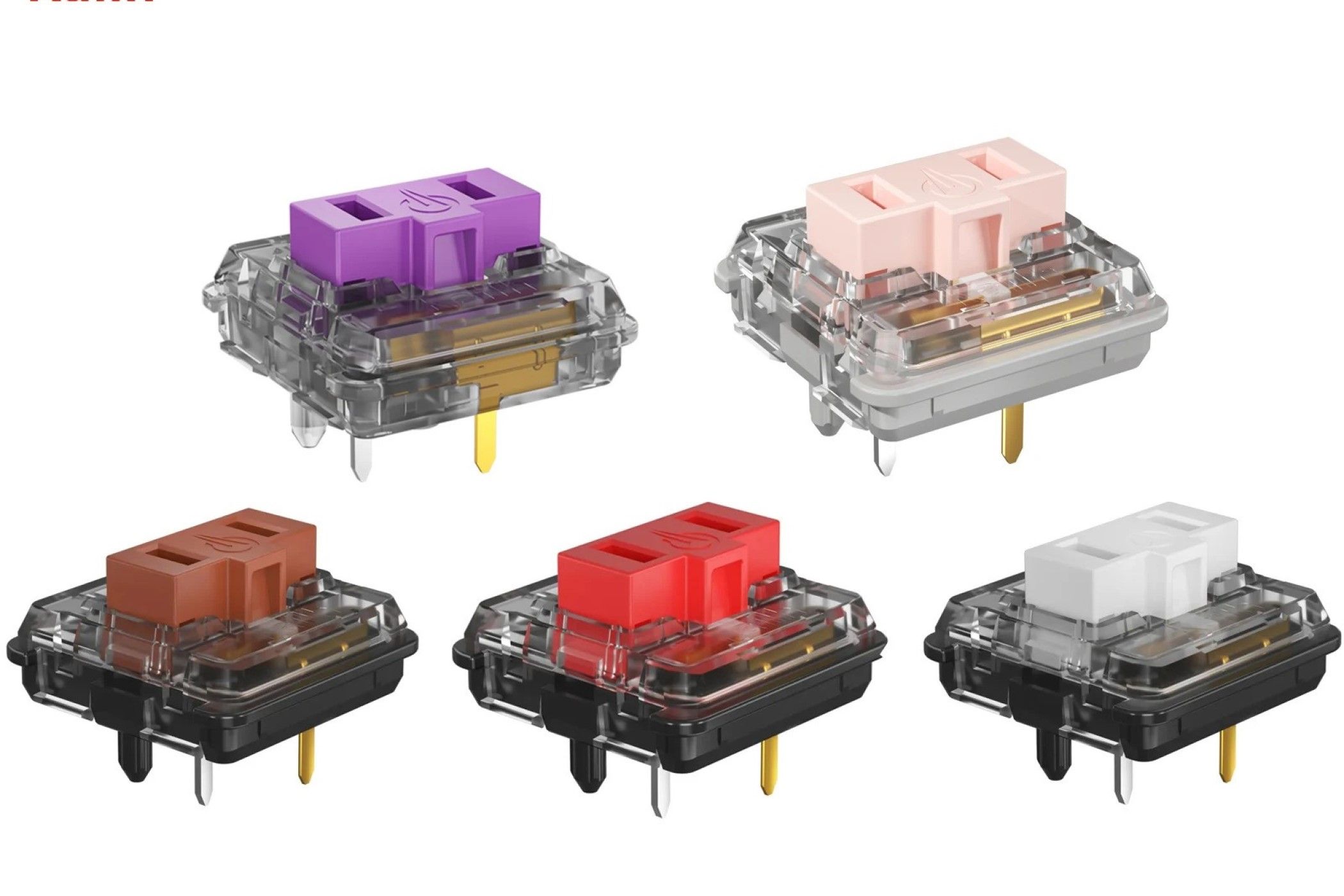
Kailh
But this is changing, and it looks like a large majority of recently released low-profile switches I’ve seen has regular, Cherry stems. Even better, the market is slowly getting more and more low-profile custom keycap sets.
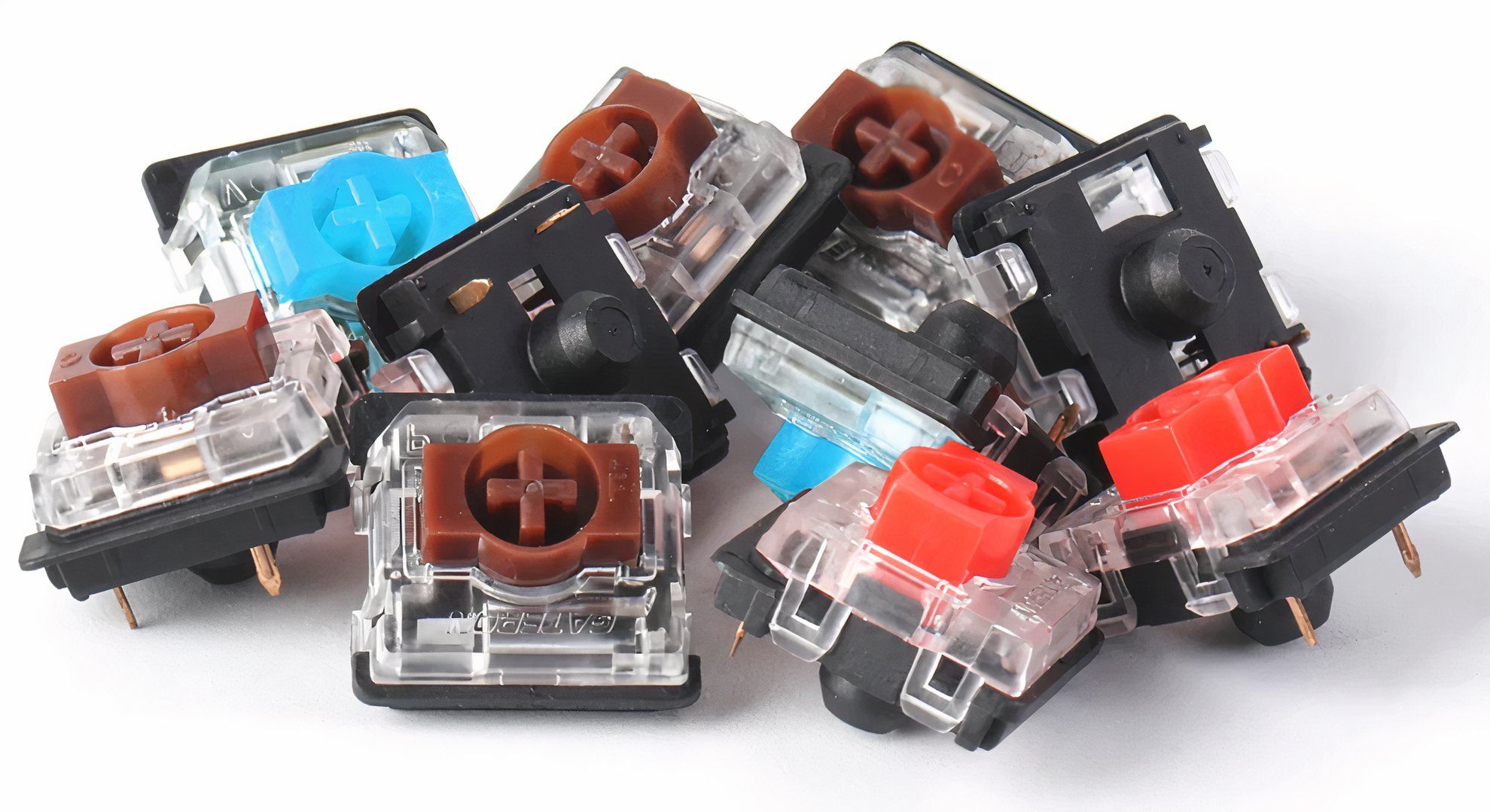
Gateron/Keychron
The situation isn’t great, but I reckon that in a year or two we’ll have a ton of different keycap sets to choose from. Heck, maybe we’ll even see a set or two from GMK.
Many Low-Profile Mechanical Keyboards Are Hot-Swappable
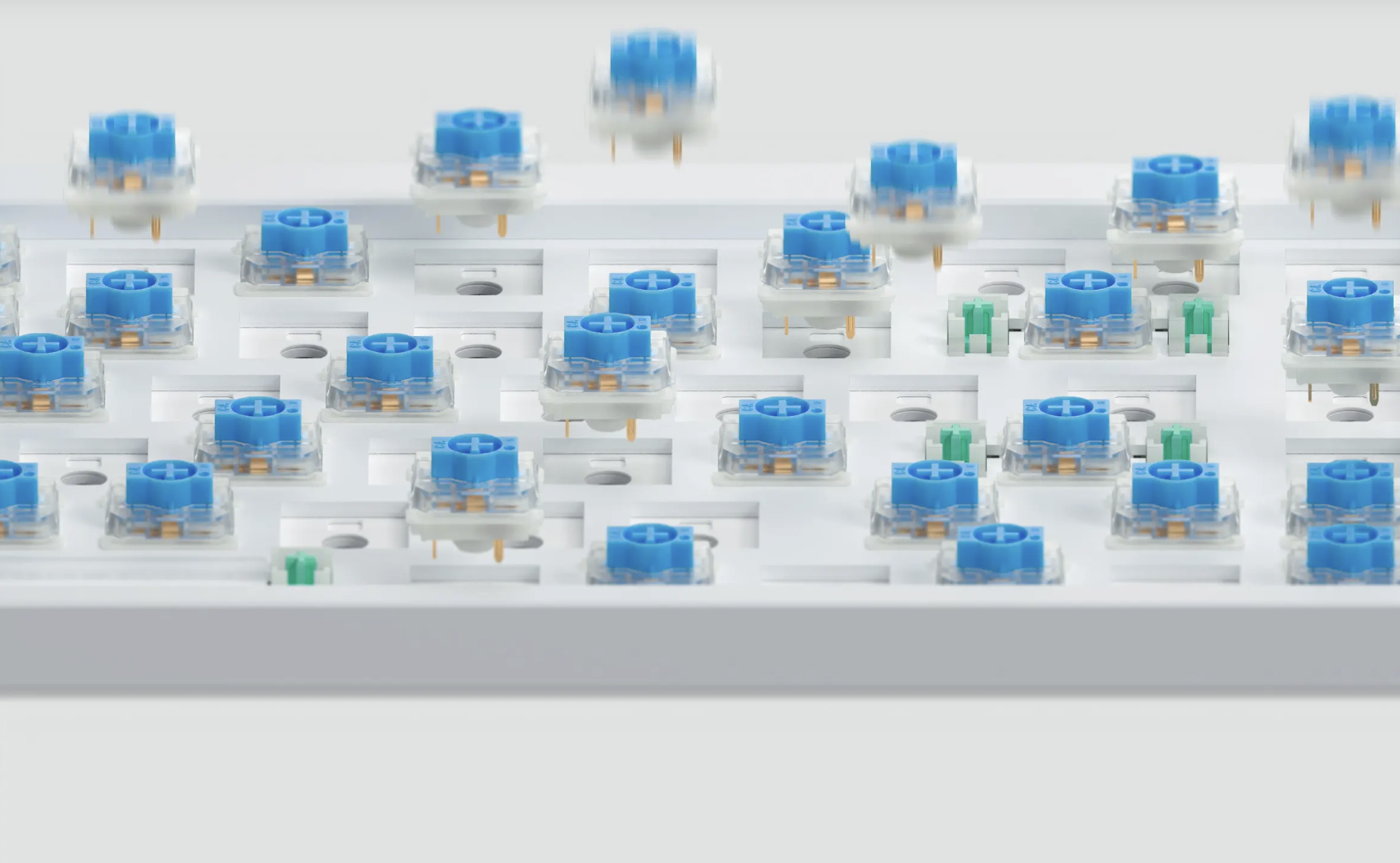
NuPhy
Not only can you swap default keycaps for any custom set on more and more low-profile mech boards, but nowadays, many models are also hot-swappable , allowing you to try out different switches.
In fact, virtually every recent mid-range and high-end release features a hot swap printed circuit board (PCB), which was unheard of just a few years ago.
The focus on improving customization has also led to the release of a couple of gasket-mounted low-profile mechanical keyboard models, finally ending the rule of plate-mounted low-profile mechanical keyboards.
There are More and More Models With QMK and VIA Support
The focus on customization has also led many brands to offer QMK and VIA support. QMK and VIA are software tools that allow owners to customize their keyboard’s firmware, which means full freedom in remapping keys, adding macros and multiple layers, changing light effects, and more.
Virtually Every Low-Profile Mechanical Keyboard Supports Wireless Connectivity
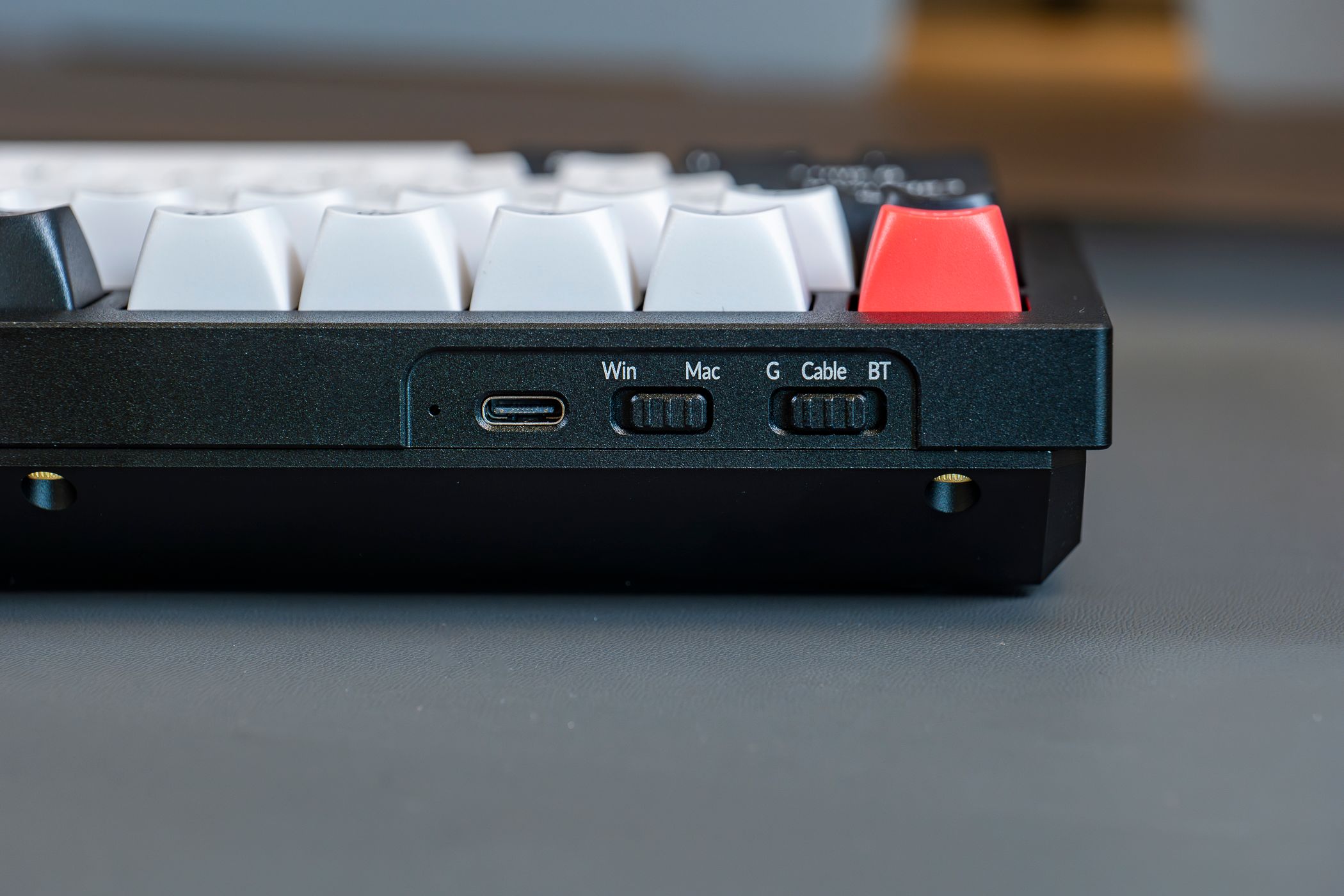
Jerome Thomas / How-To Geek
Due to their low-profile nature and small footprint, which makes them super portable, you’ll be hard-pressed to find a low-profile keyboard without some form of wireless connectivity. Be it Bluetooth or 2.4GHz, almost every low-profile mech keyboard can connect to your devices wirelessly.
Low-Profile Mech Boards Are Perfect for Users Who Need One Keyboard for Multiple Devices
The wireless capability found in most low-profile mech boards means they’re perfect for users who are always switching between devices. PCs, tablets, smartphones, handheld PCs, you can easily switch between all of those with a single low-profile keyboard.
On top of that, their lightweight and portable design coupled with the fact there are more and more compact form factor offerings means you can use one board at home, when traveling, and at your office.
There’s a Low-Profile Mechanical Keyboard for Every Budget
If I’ve managed to interest you in low-profile mech keyboards, you don’t have to worry that getting one will blow a massive hole in your wallet. You’ve got low-profile mech boards starting at just $50, and dozens of models that you can buy for less than $100.
What Regular Mechanical Keyboards Still Do Better
Despite the massive strides mechanical keyboard manufacturers have been making in the low-profile market, regular mech keyboards still do a number of things better.
Level of Customization
Regular mech boards feature a substantially higher level of customization. This most likely won’t change in the future because the low-profile form factor has inherent limitations concerning its design, stemming from the limited space inside the case.
You can’t make a low-profile board with an O-ring mounting, for example. Also, despite the sound of an average low-profile board getting better and better, they won’t match regular mech boards anytime soon because of their thin profile that cannot create a sound as rich as a thick case made to clack or thock as best as possible.
Then we have the situation with keycaps. While you can now find a decent selection of low-profile keycaps online, they aren’t even close to the number of regular keycap sets.
Number of Switches to Pick From
While we’re getting more and more low-profile switches, the insane abundance of regular mechanical switches will never be matched. You have hundreds, if not thousands, of different mechanical switch designs. Unless low-profile mechanical keyboards surpass regular ones in popularity, low-profile switches will never come close to that number.
Hall Effect Mechanical Keyboards Are a Better Option for Gaming
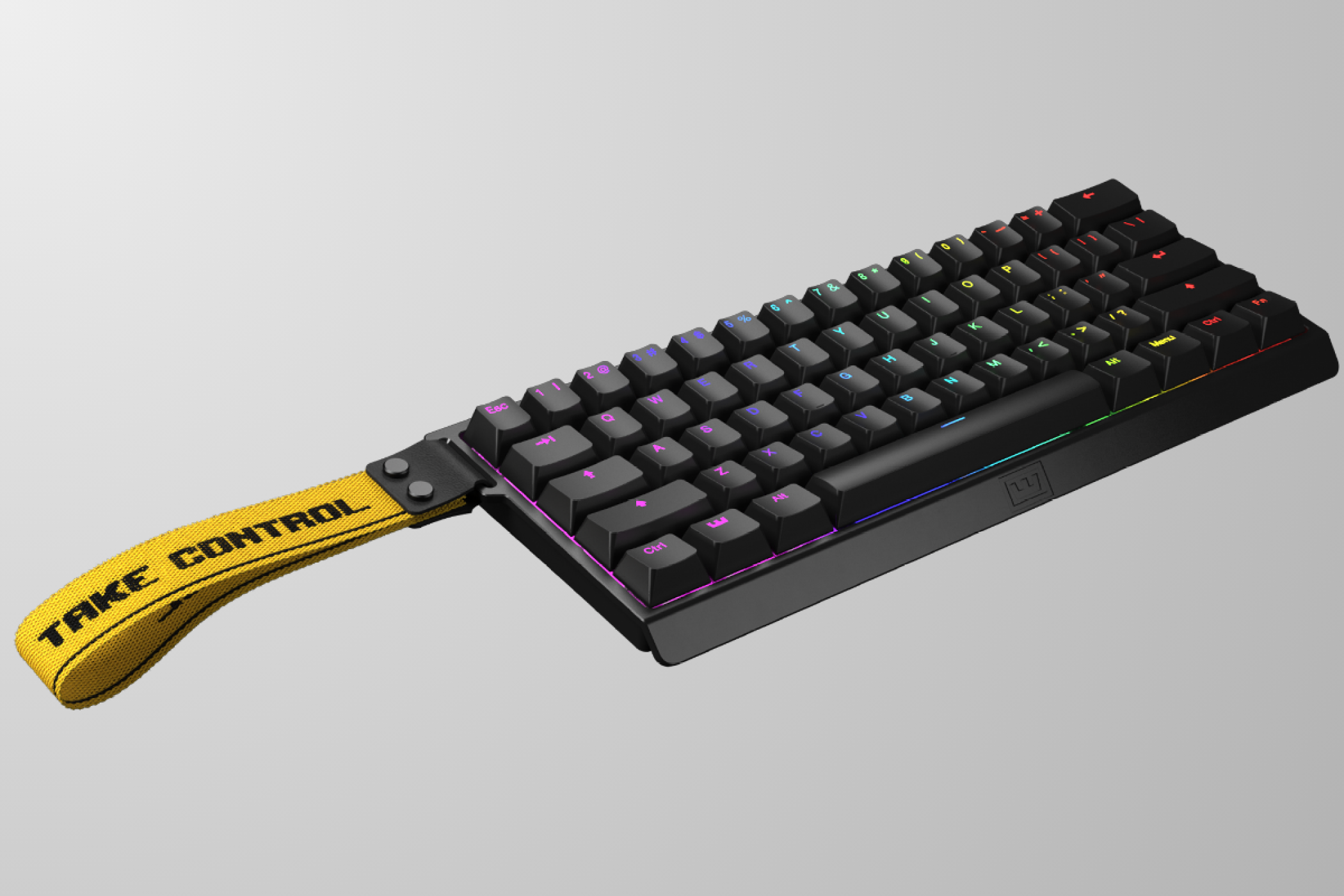
Wooting
While regular mechanical keyboards and low-profile mech boards are both solid options for gaming, Hall Effect mechanical keyboards , especially the Wooting 60HE , are the superior choice for gaming thanks to their adjustable actuation point and Rapid Trigger Features. And all HE keyboards feature the normal, taller height.
You Won’t Find Custom Low-Profile Mech Keyboard Kits
If you’re into custom mechanical keyboards, you know that there’s a rich market for custom mechanical keyboards. Keyboard aficionados can mix and match different housings, plates, switches, and keycaps and build unique keyboards that you can’t purchase anywhere.
They can also solder their own circuit boards, customize foam layers, do a number of extra mods that can improve the sound or the overall typing feel; they can even CNC their own cases, create ones from wood, or 3D print them.
But due to the limitations the low-profile form factor carries with it, low-profile boards will never match this breadth of choices found on the custom mechanical keyboard scene. In fact, as of this writing, I can’t find even a single custom low-profile keyboard kit, let alone cases, plates, gaskets, and other stuff.
Despite all those shortcomings compared to regular mechanical boards, low-profile mech keyboards are slowly taking a bigger and bigger chunk of the mechanical keyboard market, and for good reason.
Also read:
- [Updated] Tune-Up Guide New Gadgets Reviewed for 2024
- Az Online-Vidéokép Békezete Tükrölése - 3 Eltérő Közzéhovás Méthodusok
- Decoding Facebook Capturing and Keeping Status Videos for 2024
- Effective Solutions to Overcome nw_store.exe Program Malfunction
- Feature Showdown: Does TP-Link's Archer AX6000 Edge Over NETGEAR’s Nighthawk AX12?
- How To Transfer Data From iPhone SE To Other iPhone 12 devices? | Dr.fone
- In 2024, Smart Selections Top 10 Apps for In-the-Moment Baseball and Soccer Viewing
- In Depth Look at Motorola Edge+ - Does It Measure Up?
- Is Walmart+ The Answer to Affordable Shopping? Let's Examine!
- Paws and Giggles Cam: Family-Friendly Pet Monitoring
- Showcasing the Potential of Small Phones - In-Depth Analysis of Apple's iPhone 12 Mini
- Top 5 Revolutionary Gadgets for Perfecting Your Slumber Experience
- Updated In 2024, The Best Free Divx Video Cutting Software
- Woven Wisdom in Digital Weaves AR/VR Quote Compilation
- Title: Why a Low-Profile Mechanical Keyboard? Explore These 10 Compelling Benefits Now!
- Author: Eric
- Created at : 2024-11-21 01:43:12
- Updated at : 2024-11-24 21:24:05
- Link: https://buynow-reviews.techidaily.com/why-a-low-profile-mechanical-keyboard-explore-these-10-compelling-benefits-now/
- License: This work is licensed under CC BY-NC-SA 4.0.